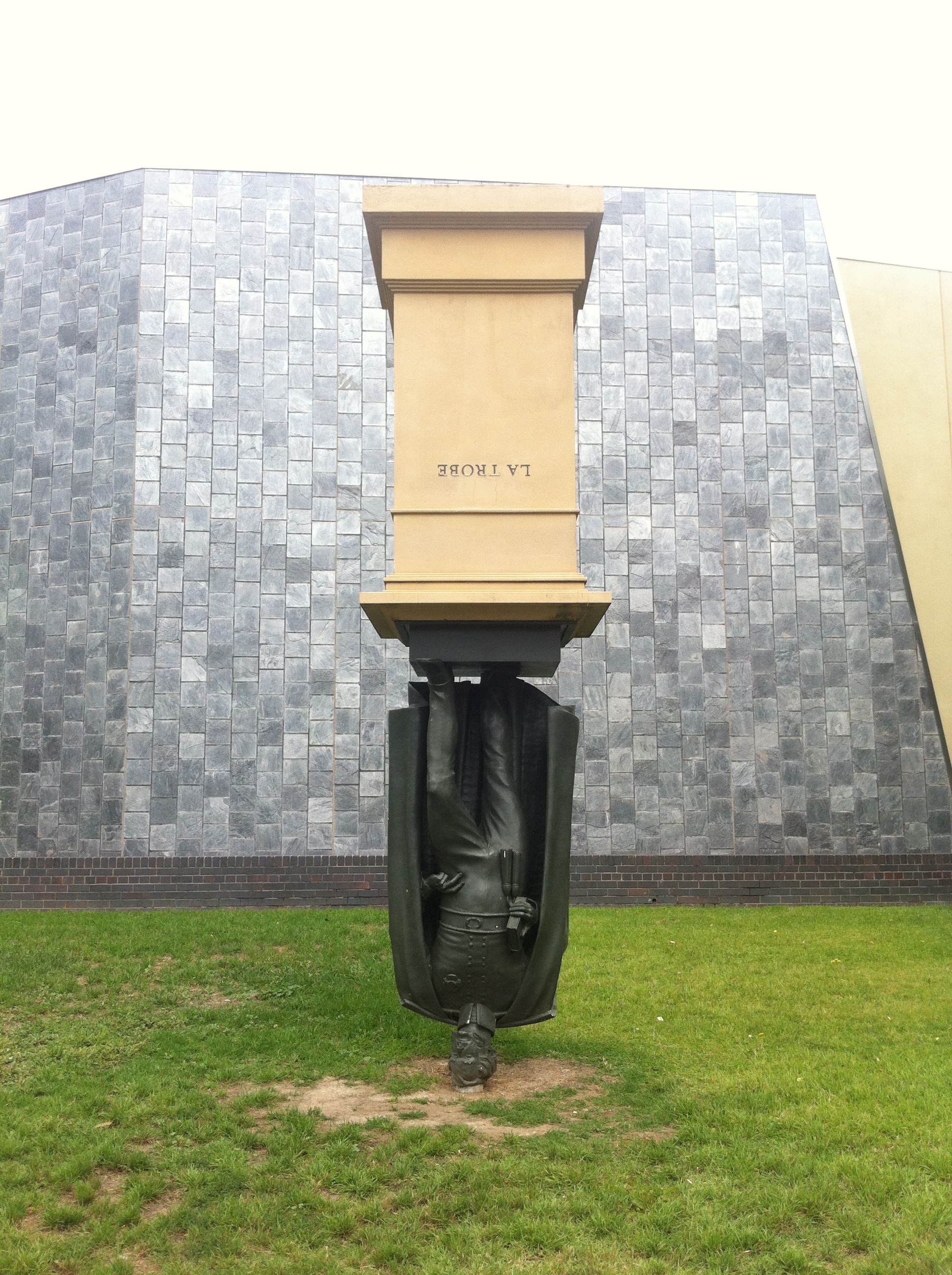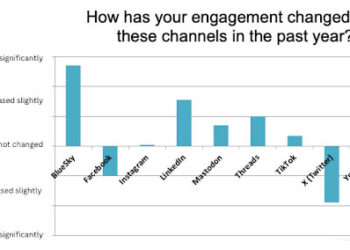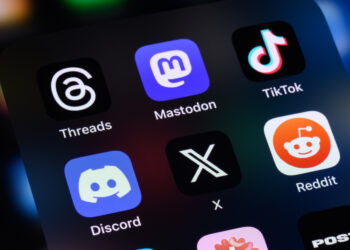
A week or so ago, a young PhD student wrote a piece in the UK’s Guardian newspaper entitled “I’m a serious academic, not a professional Instagrammer”. It has, as Sjoerd Levelt jokes, “got academic twitter back from holiday”. The hashtag #seriousacademic has exploded, with Google finding 5,730 results already at the time of writing – an average of about one mention every 2 seconds since the article posted. Responses have ranged from the sublime to the ridiculous (pies, fancy dress, academic Olympics, swimwear, skeletons on the loose, snack drawers, ducks, and of course, cats).
What emerges is a clear message: social media is not a thing apart. It’s a conference (“a meeting of people with a shared interest“). It’s a publication (“the action of making something generally known“). It’s a discussion group. It’s a journals club. It’s media engagement, it’s public engagement. It’s simply a different way of facilitating the same fundamental behaviors that have always driven academia. Social media is now woven into the fabric of how we communicate.
And sure, not everyone uses it. But not everyone watches television, or listens to the radio, or writes letters, or chats on the phone; not everyone can get to conferences. Choosing not to use a communications medium does not mean that medium has no value. I’ve written before about why I think social media is useful at conferences, and #seriousacademic has brought out some other useful discussions about that. There are stories about how social media has helped academics, from giving lone rangers a community to connect with to helping debunk some of the myths about what it means to be an academic (and let’s not forget the list we compiled here, shortly before this furor kicked off, of the role of social media in scholarly publishing). Ultimately, many agree with Maxine Mackintosh that “Knowledge is useless unless shared and disseminated. To not engage in modern platforms of information exchange not only prevents you from being a ‘serious academic’, I would argue that it also makes you a bad researcher.”
Still, the original “serious academic” is not alone. In among the backlash there are supportive voices (not surprisingly, I couldn’t find any tweets representing this group — the closest to a supportive tweet being the dry reminder that “taking selfies is NOT necessarily ‘public engagement’”). So why do some academics choose not to engage with social media? I think there are three primary issues:
Results
Social media has really only been mainstream for at most 10 years — likely less, in many academic communities. Despite many studies suggesting correlation between social media and improved impact (of varying kinds), it’s difficult for an individual academic to see clear connections between communications efforts and meaningful results — the results they seek are a few steps removed from the actions they take. Since many academics are, by nature, skeptical of rhetoric and preferring of evidence, it’s not surprising that many are still to be persuaded that social media is worthy of their limited time. Enabling better correlation between communications data and publications data is my own passion, and the systems we’re developing at Kudos help connect the dots between communications and publications and show that small efforts can have worthwhile results. In addition to this data-oriented approach, I’m working with Stacy Konkiel from Altmetric on a project to explore “social media intent” — what does it mean for a researcher to “like” something on Twitter, to “reshare” a Facebook post, to “bookmark” something to Mendeley? Which of these should be correlated more or less closely with readership, or citation? The outputs from this ethnographic approach will also help academics, and all those involved in scholarly communications, understand more clearly the role and potential of social media — and all these studies together begin to form the corpus of evidence required to help higher-level decision makers determine whether and how to recognize communications in decisions around things like funding and tenure.
Reticence
Liz Neeley from The Story Collider has written beautifully about the “deep-seated belief that while the work of content creation is noble, the work of drawing attention to that content is distasteful if not in fact degrading. It’s an emotional reaction, exacerbated by the suspicion that the usual advice for increasing traffic — repetition, jumping into comment threads to mention your post, direct requests to retweet — can indeed annoy the very people you hope to impress”. She goes on to point out that it is possible to communicate about your work without bragging, and that “it’s a false dichotomy to set up silence as the only alternative to obnoxiousness.” She also picks up on another classic canard — “I want my work to speak for itself” — which is understandable, but seems optimistic in this era of information overload and millions of academic works being published each year. Cameron Neylon’s #seriousacademic response cuts to the heart of this: “Anyone who wants an academic career needs to make their work visibly stand out from crowd.” As an academic, you are the best-placed person to know who will be interested in your work, and it could be argued that your final duty to any project funder is to ensure that the work is found and applied by the widest possible audience.
Playing to your strengths
Sean Ryan touches on this in his Twitter chat with Jacquelyn Gill (“social media are helpful, but not necessary. Best scientists think, write, & build. We have sci journalists for a reason.”). Most of us prefer to spend our time doing things we’re good at, rather than things we feel less good at. As a wordy, musical but decidedly unsporty child, I remember the shame of sports days and cross-country runs where my incompetence was on display for all to see. I can see that for some academics, social media is sports day, every day. I sympathize with people choosing lab over field. But I have to admit, looking back, that school sports not only kept me healthy, but also taught a cocky brainiac some useful lessons – humility, resilience – and I wonder whether reticent academics might similarly benefit from exercising their communications muscles.
Discussion
24 Thoughts on "What Puts #seriousacademics Off Social Media? "
Today teams are important. That includes colleagues with whom one can work and share. And then there is a good publicist, one who understands the individual, team or organization and can effectively engage with effective marketing whether on social media or other platforms. That’s why academic journals send their teams to exhibit at conferences, provide stories and other information with careful curation and placement.
Thanks, Tom – that’s a good point that if you have a team / group you don’t all have to be engaged with social media, and each of you can play to separate strengths.
I have no Facebook, Twitter, Instagram or other SM account. I have no smart phone or even mobile phone. I feel free and liberated this way, with no ties and enslavement by SM. This gives me the liberty to observe what others are saying and choosing traditional publishing as the medium to express my ideas, rather than an instant satisfaction punch line. I know it sounds prehistoric, but it works for me. It also gives me more time to focus on my work and on my family. Heck, if I didn’t need email to communicate with journals or to post some comments on blogs, I’d throw my email out the window, too!
It is a bit off topic, at least directly. Many years ago I was actively involved in political campaigning. As an academic, I was often upset both by the boasting and repetition in the leaflets I was asked to deliver. However, as the more experienced guys pointed out, these worked. I don’t use the mainstream social media, but indeed my use of specialised media (researchgate, quora) have increased my exposure.
It seems to me that social media types tend to expand social media when attacked, i.e. Mendeley falls within the net of social media, from that which is generally considered social media namely: twitter, facebook etc. I simply have not seen a scientist tweet or facebook the results of an experiment. It seems to me that “serious” academics use tweeter and facebook for keeping in touch with the family and friends but not for relaying results or methods or what-have-you that relates to their work.
There is certainly no straightforward definition of what constitutes “social media”. It’s become a catch-all term that encompasses both social networking (Facebook, Twitter etc) and social bookmarking (Delicious, and I would include Mendeley – social in the sense of allowing connections between people, and public sharing of activities). I don’t think it’s only when under attack that people include these broader types of social activity, though I think you could be right that those undertaking the attack may only really be focused on the networks rather than the wider types of social media.
People not only share results of experiments, but also the highs and lows of the experimental process, via social networks. (Recent example from one of my researcher friends, shared via Facebook, for your delectation: “Laboratory Laments #3561. Today could/should have marked the completion of 6 weeks laboratory prep for the 2016 Kalahari samples. Instead we’ve learned that Whatman glass Microfiber 0.45 micron syringe filters introduce somewhere between 9 and 23 ppm contamination of chloride into samples. Drop-kicking the empty box across the room didn’t really make me feel better (enough) about this. Share your lab laments here for catharsis and then join me for a G&T?”) And of course they share publications summarising the whole process and its results.
Things are changing quickly. I’m certainly seeing a shift from people using social networks only to keep in touch with family and friends, towards using such networks to connect with others in their field, and discuss research. This HBR article has some nice tangible examples: https://hbr.org/2016/06/how-academics-and-researchers-can-get-more-out-of-social-media
If I may, I am not an academic, but when I have access to work that sparks as interesting or relevant to me, I benefit and I deepen my appreciation for those who do this work. While no academic needs my personal thanks, isn’t there a consideration of the social benefits to making one’s work accessible?
In collaboration with the Royal Society of Chemistry Analytical journals we have run 2 twitter based conference presentations over a 24 hour period within which there was discussion and interaction of science an scientists. We have written the first one up as a paper here (http://f1000research.com/articles/4-798/v1) and are currently analysing the analytics from the last one. There is a definite role for social media in improving and engaging with global scientists
The so-called ‘social media’ have nothing ‘social’ but superficial. They are either for profit or time wasting or both at the same time.
Example: researchgate: the guys get money from companies by advertising their products and by selling members’ profiles. Members in researchgate look like sheep-tax gathering industry: on each new sheep you get a new tax.
The same for fa…book and twitter.
Serious academics have no time for such crapping games.
Researchers should certainly be aware that many (most?) social media options, whether mainstream or specialist, are for profit so the blue_beetle adage “If you’re not paying for it, you’re the product” applies and you should take a moment to think about the information you are willing to share. That doesn’t necessarily mean that such tools can’t be useful to academics – see Chemistrybaker’s example above, and the HBR article that I have also cited in my response to Harvey Kane – https://hbr.org/2016/06/how-academics-and-researchers-can-get-more-out-of-social-media
I think we’re emerging from the era of social media as crapping games, to the era of social media as useful addition to the different tools available to support research interactions.
Charlie
Thanks for a very helpful and engaging post: the final para is particularly au point…! Nonetheless, and to strike a slightly dissenting note, I do think that quite a lot of assumptions are built into this set of discussions, not least about the age and disciplinary profiles of academic faculty (in which, in the UK at any rate, the middle-aged and above, and the humanities and social sciences, constitute the majoritarian demographic cohorts). I appreciate that the article and much of its social media response were written by Early Career Researchers, but it is worth perhaps emphasising that there are very significant areas of enquiry – particularly those H&SS areas in which long-form modes of publication predominate – where social media usage in the advancement of research is not mainstream still, and where (to be frank) a lot of the participants would not necessarily know how to do it properly even if they wanted to. I would emphatically put myself in that category…This is also of course the sector where – to raise Tom’s point above – research and project teams are still very much the exception, rather than the norm. Senior faculty in H&SS who, say, tweet regularly very often do so in an institutional context (as Head of Department or similar) rather than in their capacity as historians or philosophers. That may of course change, but one thing all schol comm observers have learned to treat with some scepticism over the past two decades is the presumption that generational change of itself (underlined) will change technological behaviours, as manifest by (to take one obvious example) the survival of the academic printed book which, contrary to so many turn-of-the-century predictions, still constitutes at least 80% of the global book market in the humanities and social sciences.
Hi Richard, thanks for your thoughtful comment. It’s a good point that social media is still in its early days and uptake among researchers is not widespread. I am not certain that there is any clean demographic line you can draw, in that there are countless examples of established academics in the humanities making great use of social media (see for instance Joanne Begiato, a professor and head of the history department at Oxford Brookes – using it very much in a personal-professional capacity though rather than on behalf of the institution: https://twitter.com/jbhist). At Kudos, where we help researchers manage sharing across a range of channels including social media, approximately 30% of our registered users are professors. And our humanities users are our most active group in terms of the amount of sharing they do.
Overall I agree that social media is not mainstream yet, but to me the indicators are clear that it will become so. That doesn’t mean that other forms of communication will cease – social media can enhance the conference experience as I note, but I don’t expect conferences will suffer as a consequence (possibly the opposite – they will thrive on the additional visibility?). And of course (going back to the original Guardian article) it shouldn’t mean that social media outweighs other forms of communication i.e. people who choose not to engage that way shouldn’t be penalised for it. I guess participants in the #seriousacademic meme just want to make the point that they in turn should not have their academic credibility called into question for exploring a new medium, and to your point, I think we need to ensure that we draw the line between healthy scepticism / rational perspective and blinkered resistance (which to be clear, I am not accusing you of!).
Thanks Charlie – that’s entirely reasonable, and I don’t disagree. As you say, none of this is substitutional activity, and should happily coexist alongside other, more established and/or permanent forms of communication. At the same time, it’s important to recognise that there do remain disciplinary pockets where (say) tweeting at conferences is regarded as straightforward rudeness, both to the speaker and (importantly) to other audience members. It’s interesting, and testimony to the nerve that the original Guardian piece has clearly struck, that this week’s Times Higher has a very helpful ‘how to do it’ guide to social media for academics for many of whom (as we both agree) this is uncharted territory.
Hi Richard, I’m interested in that – are there specific fields that you would point to where conference tweeting is considered rude? I could be very much in a bubble and would be interested to see beyond it!
Charlie – I can recall a political theory event I was at, in fairness perhaps a couple of years ago, where the speaker asked the audience what we thought (about tweeting the session) and the strong majority position (including me, for what it’s worth) was against. As somebody said, we wouldn’t expect our students to engage in social media activities during lectures and classes, so why should we permit same in this conference context? I suspect that attendance at the annual meetings of (say) the Classical Association or the Leeds Medieval event (both significant events, in terms of delegate numbers) would likewise then have manifested relatively small amounts of session-specific tweeting. But it’s quite possible that things have moved on significantly in more recent times: you and Kudos are going to be closer to much of this than I.
Thanks, Richard – useful additional detail. I’ve never been at a conference where that question has been openly addressed but I remember being at the NORDP conference (research development professionals) last year and for much of it being the only person tweeting. I am eager to understand more about communities that choose not to tweet etc (for reasons of curiosity rather than evangelism!), so your pointers here are helpful!
I think one major problem is that SM involves looking at a screen. We used to hear constantly that this was a bad thing – now this behaviour is displacing everything, and the complaints are muted, especially in the US . Increases in the usage of SM seems to have increased along with the technology that eases it use – mostly, smartphones. I just work from a laptop and function with a moderate online presence, but SM use is very limited on such a device. I can’t be tweeting from people’s conference talks (which is unnecessary and rude – could not believe it the first time I saw it – who wants to read that “x just said…”?), do not need to want to inform people instantly of anything everything (like my son’s teenage friends) or be checking ‘feeds’ and so forth. The cream will rise to the top in its own time. On a computer rather than a phone, SM requires a dedicated block of time to consult or contribute to online material – it is not so constant. And when that time is over, you are done for a while, as I am with my blog and a couple of other applications. With no phone to consult, I find I am often the only person on public transport looking around me; one of the only ones actually looking at the speaker during a talk; and I have an hour or two a day gained that I can use for non-SM-checking and contributing more conventional scholarly activity. The point about writing in the social sciences and humanities that you have to*not* be connected so you can concentrate and actually write a coherent sentence. Having a conversation recently with a well-known bunch of people in my discipline, one admitted to spending an hour in the morning tweeting and so-on; the others were silent or somewhat disparaging, since none of us did. I am not going to say which was most productive in the classic scholarly sense, but there was a cross-section agewise. The question is not whether academics are using social media a lot, but whether they ought to be and whether they are now slaves to a technology that did not exist 10 yrs ago. This , then, requires a “technography”. I did write about all this in 2011 and define technography there, while pursuing my dinosaur antics. https://simonbatterbury.wordpress.com/2011/06/24/bonfire-of-the-smartphones-cathy-davidson-vs-baroness-greenfield/



